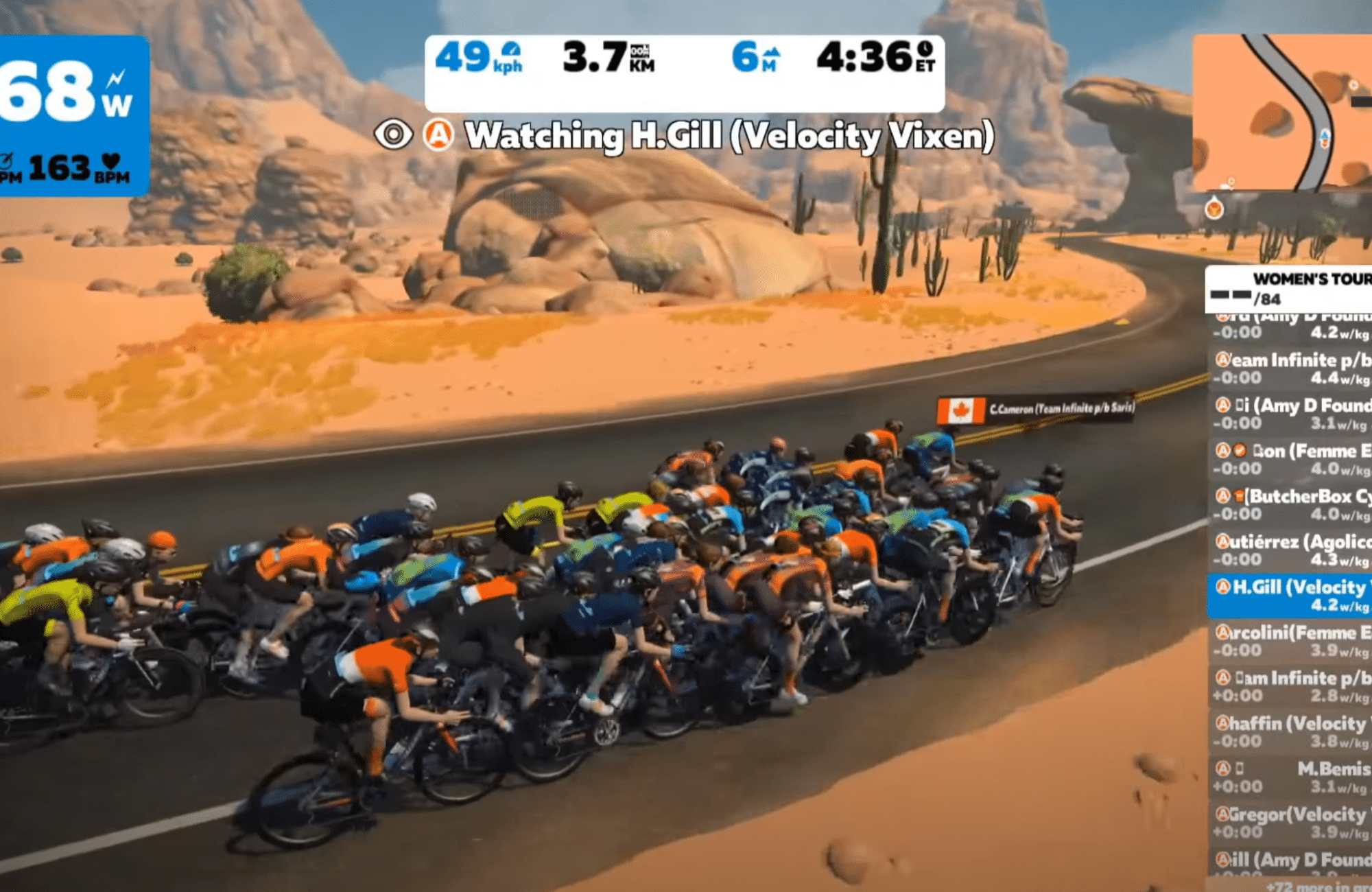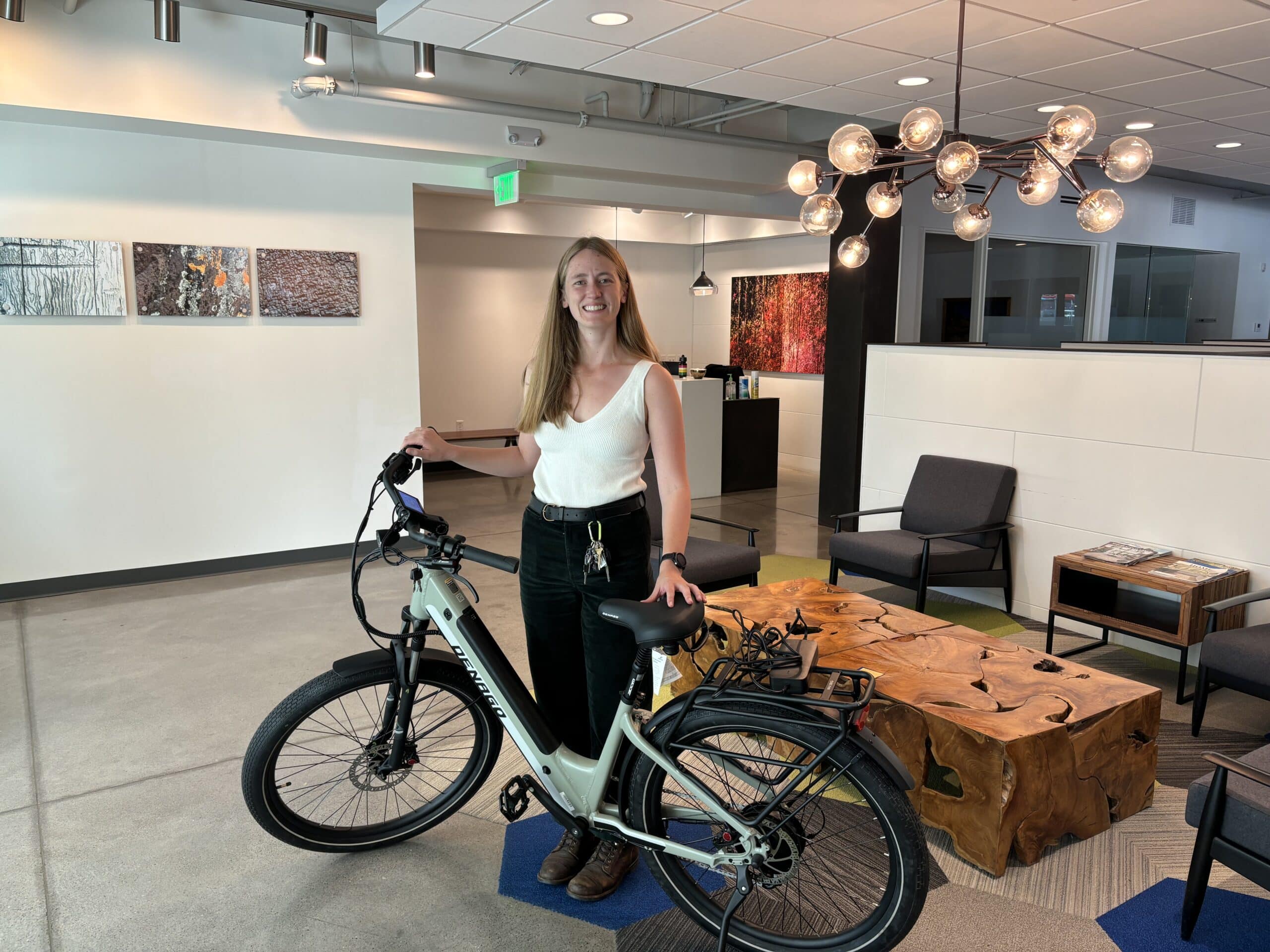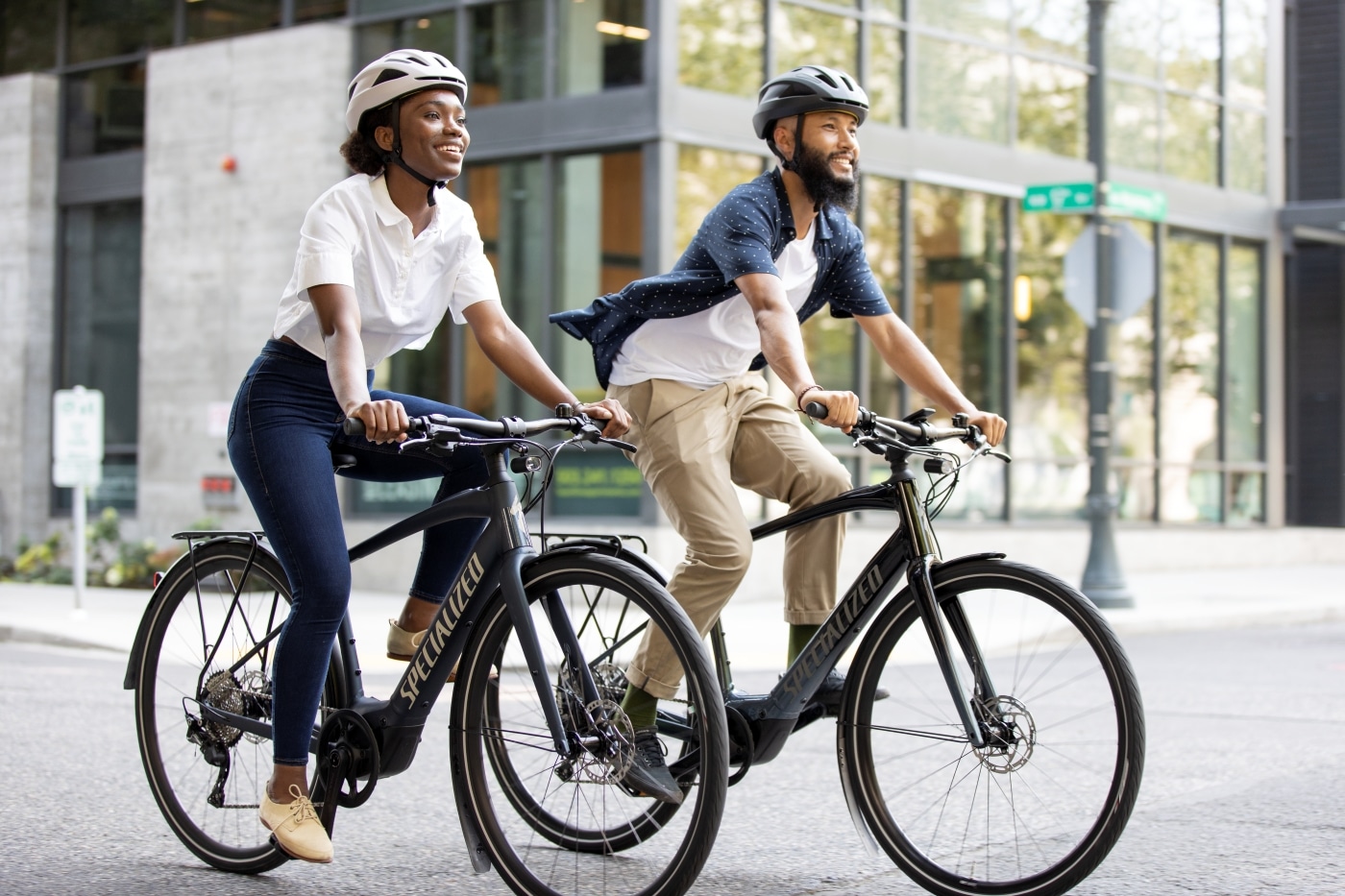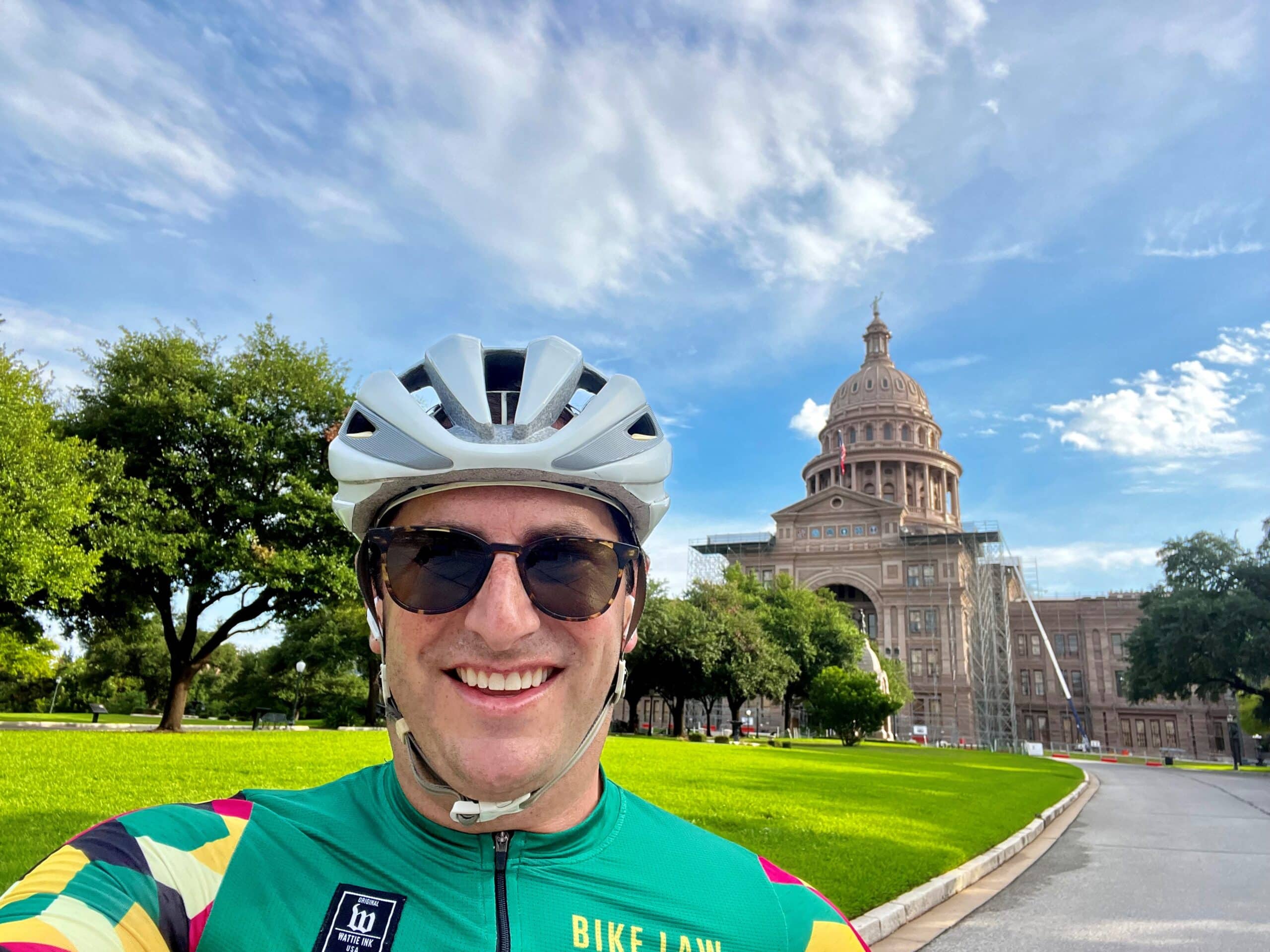This article follows Part 1 about virtual bike racing in a time of COVID.
How the Tour of the Gila went virtual.
For the past 33 years, the small southwestern New Mexico town of Silver City transforms into a bicycling bonanza during the final weekend of April. That’s when bicyclists from across the U.S. and internationally descend on the city of 9,500 for the Tour of the Gila, a bicycle stage race that traverses more than 300 miles of the Gila Wilderness. The race is known for its challenging elevations, including the Gila Monster Road Race that climbs more than 9,000 feet in elevation.
I’ve read about this race on the U.S. professional circuit since I was a teenager. It’s a grueling course that’s hard to replicate anywhere else in the United States. Surely, I never thought that my own Zwift setup at home would be the basis for top level professional racing: virtual bike racing.
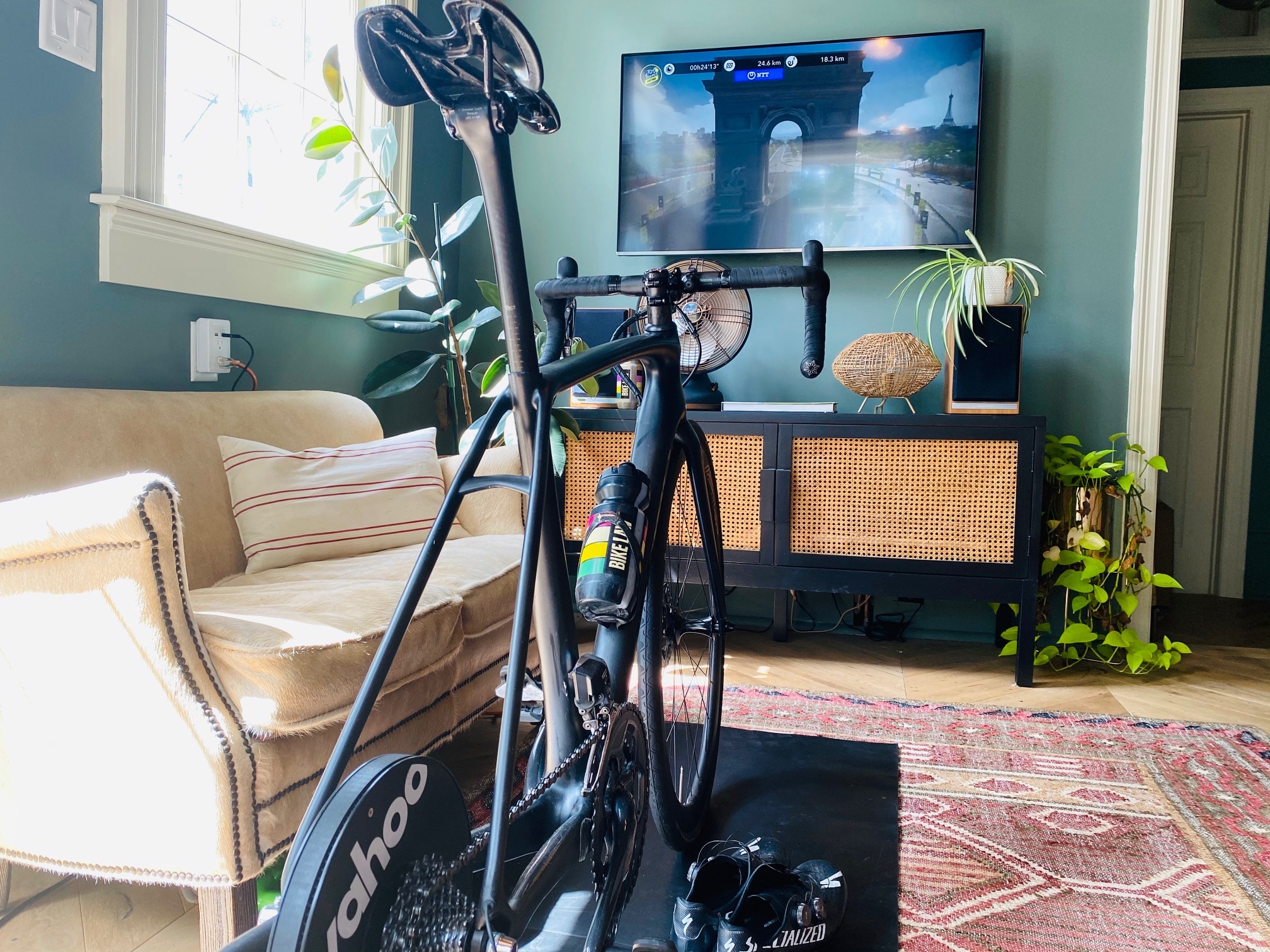
But organizers realized this year was going to pose far different challenges than hills to climb after the new coronavirus emerged as a global threat in January and February. On March 13 — just as some states were only starting to announce their first cases of the deadly virus — Tour of the Gila organizers announced they were canceling the race’s 34th year.
Race Director Jack Brennan said it became clear early on that with race safety a top priority and global travel emerging as a critical threat to public health, it would be impossible to hold the race. At that point, Brennan thought organizers would shift focus later in the year to planning the 2021 race, assuming — and hoping — the public health authorities would declare the virus under control.
Brennan was wrong.
Without the race organizer’s input, Wisconsin-based Eric Hill (interviewed in Part 1) began plotting a way to put on the Tour of the Gila without racers ever having to pack up their race gear or step into an airport.
Using the multiplayer online training app Zwift, Hill quietly began plotting a virtual Tour of the Gila race that would eventually draw teams from across the globe. By April 29, Tour of the Gila was ready to roll, complete with announcers calling the race on a YouTube livestream, custom avatars for teams and craggy mountain roads standing in for Gila National Forest’s byways.
Bike Law asked Brennan to break down how he became a leader of the development of virtual bike racing. (This interview has been condensed and edited for clarity.)
Interview of Virtual Bike Racing Organizer John Brennan
Bike Law: What makes the Tour of the Gila special?
Jack Brennan: Silver City is in the southwest corner of New Mexico and we sit at 6,000 feet, and we’re right at the southern end of the Gila National Forest, which has incredible mountains and rivers — it’s just a unique place. The roads are old and well-maintained, but they’re not engineered like roads would be today where you have no more than 6% or 7% grade. There’s some roads out in the Gila that are really steep, really curvy — they’re dangerous, but that brings these amazing bike handling skills, climbing skills, descending skills into the race. It’s known as a climber’s race.
BL: What are you known for?
JB: Amateur riders say this is the best-organized event they race the entire year. They go home and other races don’t have the quality of roads, quality of our racing and they don’t have the organization we have.
BL: And for non-amateurs, you’re now a UCI (Union Cycliste Internationale) event.
JB: In the early 2000s, we became a national racing calendar event, and that’s a top-tier stage race. We were that for 10 years, and we had a pro men’s and a pro women’s race, and it had national stature at that time. Now we have international stature. This year, we had 8 foreign teams registered for men and 4 or 5 teams for women. The race was looking so solid with the quality of the teams. We had a team from New Zealand coming, a team from Ecuador coming, two teams from Mexico, two teams from Canada, a team from Sweden was coming. It looked to me like we were going to have a really outstanding event in 2020.
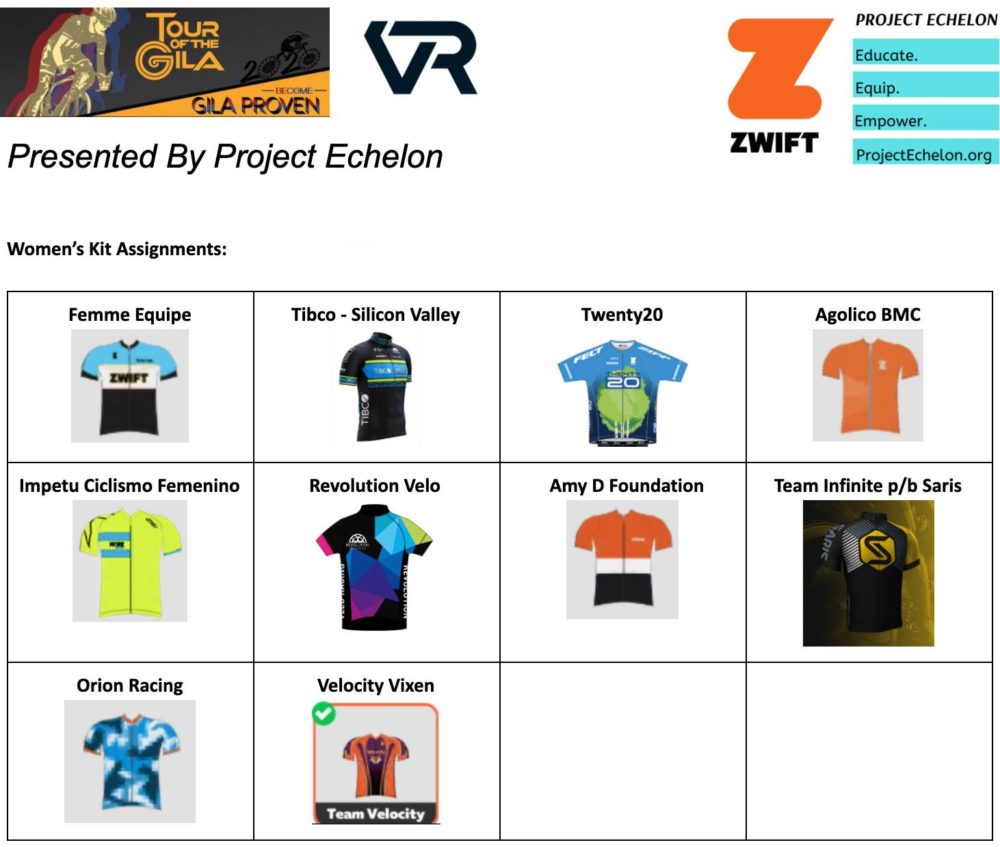 BL: It must have been a tough decision to cancel, with it being such a big event for the town, plus all of the riders. There must be a big economic impact.
BL: It must have been a tough decision to cancel, with it being such a big event for the town, plus all of the riders. There must be a big economic impact.
JB: It wasn’t economics, it was the safety of our community. We had riders coming from all over the world. Bringing these people in in the middle of a pandemic — to expose people from all over the world — it could’ve been really ugly.
BL: How did the virtual component of the race come about?
JB: In the U.S., there’s three major stage races: There’s the Redlands Bicycle Classic in Southern California, the Joe Martin Stage Race in Arkansas and the Tour of the Gila. They all happen in pretty much one month. Eric Hill, who’s with Project Echelon Racing, decided to do a virtual race for all three. He didn’t tell us before he announced. We got in touch with Eric, and one of the things we wanted to do was bring in the women’s race to the virtual Tour of the Gila. The Redlands was only a men’s race.
BL: How was the race set up?
JB: There’s an enormous amount of work. Eric is a teacher in Wisconsin, and he rides on his domestic team and then decided to put on these virtual races. It was invitation-only for men’s and women’s teams and we ended up with 25 men’s teams and there were 8 international teams, with a total of 158 riders. On the women’s side, there were 12 women’s teams, 2 international teams and the U.S. international team sent 4 riders. There were 3 stages: a team time trial, a circuit race and the last stage was a point-to-point race. They tried to simulate our course. For example, our second road stage is hilly, but it ends with a flat, mass sprint to the finish. That was similar.
BL: And Eric did this without even conferring with you?
JB: We tried to get in touch with Zwift, but we couldn’t get in touch with them. Then we heard about Eric, so we got in touch with them and really encouraged them to do the women’s race. We think our women’s race is one of the best in North America and we’re really proud of it and want to promote women’s cycling in this country. So all the coordination, invitation of teams, that was all done by Eric.
BL: I would guess that some of the riders are familiar with the Zwift technology, but were they familiar with using it for actual racing?
JB: There was one really quality road team that told me that they decided to go with the virtual tour as their first event, and they said it took them 10 hours to get everything set up so their riders could actually ride. It was brand new technology and riding for them. It was a lot of work for each team to get smart trainers, to develop an avatar for each rider and get everything that was required. It was a big learning curve.
BL: What kind of feedback did you get?
JB: All the teams were saying this is great — we can’t race on the road right now, but they thought it was very advantageous for their teams. It was really good racing, so the teams were pleased, Eric and his folks are pleased. Zwift was pleased because they generated good numbers of viewership. The first night of racing was a team time trial, it had 15,000 viewers, The second stage jumped to 21,000 viewers; the last stage had 25,000 viewers. Eric was blown away — he said they were phenomenal viewers.

BL: Tell me about your winners.
JB: The guy who won, Gavin Dempster, is from Inverness, Scotland, and the woman who won, Sarah Gigante, is from Sydney, Australia. She was getting up at 3 o’clock in the morning to get ready to race. Our tradition for the Tour of the Gila is to give away these incredible trophy bowls that are made locally. They’re representative of the Mimbres Indians who lived in this region years and years ago. It’s incredible pottery that the native people did in this area. I didn’t expect to have a winner from Scotland and a winner from Australia — that’s a lot of bucks to send these pots! But they won it, so we sent it and they got there in one piece. It was $145 to send to Scotland and it cost $200 to send to Australia. They sent pictures of them holding it, and the smile on their faces, the sense of accomplishment — that was worth it.
BL: Do you think you’ll incorporate virtual components into future events?
JB: Perhaps. We’ll see what happens.
BL: Did you feel like this offset the disappointment of canceling the race?
JB: I was really sad when our race date came up in late April. It was a hard week. Knowing what we have in place, and knowing what we do for our community — we bring a lot of people in, they spend a lot of money, they’re here for 5 days, 7 days. Some teams come in the week before. The town still likes it — the people in our community are still involved. We’re a poor county in a poor state, but we put on one of the best UCI races in North America. But I have to give kudos to Eric and Echelon Racing. Their mission is to work with veterans using activities to help them manage their disabilities. Eric and his team did an excellent job.

Charlie is a bicycle accident lawyer in Louisiana, Texas, and Mississippi and a member of the Bike Law Network.
Having served as the president of the Texas A&M Cycling Team, where he led the team in appearances in the U.S. Collegiate National Championships, Charlie has spent thousands of hours riding his bicycle in Texas.
